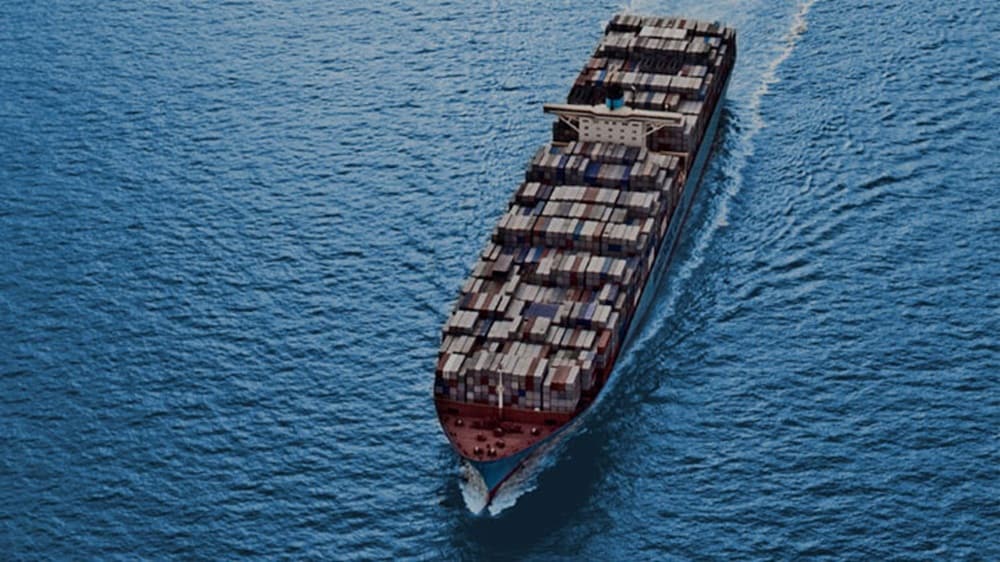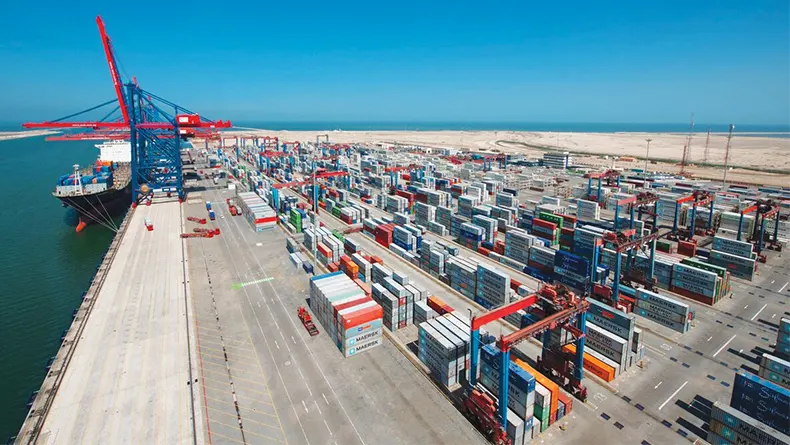Connecting Djibouti across Africa and beyond
Providing you with seamless integrated shipping to and from Djibouti, unlocking global trade opportunities for your business.
At Limark, we ensure your cargo moves seamlessly when shipping to or from Djibouti’s strategic ports. Our logistics solutions guarantee efficient and timely deliveries, minimizing delays and maximizing your supply chain’s reliability.
Djibouti’s position as a vital maritime hub for the Horn of Africa puts your shipments within easy reach of markets across the continent and beyond. Partner with Limark’s specialized logistics expertise and unlock the full potential of this dynamic trade gateway.

Import regulations
Importing goods to Djibouti requires navigating specific procedures and documentation. Here’s a breakdown of the essential requirements:
Situated in the Horn of Africa, the Republic of Djibouti is a small yet strategically located country. It shares land borders with Eritrea in the north, Ethiopia in the west and south, and Somalia in the southeast. The country’s coastline stretches along the Red Sea and the Gulf of Aden.
Despite its modest size of around 23,200 square km, Djibouti’s geographic position gives it immense geopolitical importance. It serves as a key maritime trade route connecting the Mediterranean Sea and the Indian Ocean.
History and government
Djibouti gained independence from France in 1977 after being known as the French Territory of Afars and Issas. It is currently a semi-presidential republic with the president as head of state and the prime minister as head of government.
Economy and trade
Over the years, Djibouti has emerged as a vital commercial hub facilitating regional trade and hosting numerous foreign military bases. The service sector, particularly industries like logistics and tourism, drive the economy.
One major economic development is the new USD 4 billion Djibouti International Free Trade Zone – Africa’s largest free trade zone aimed at attracting investment and boosting trade.
Transport infrastructure
Djibouti’s transport infrastructure plays a crucial role in its economic activities and regional connectivity.
The Addis Ababa-Djibouti Railway is a vital trade corridor linking Ethiopia’s capital to Djibouti’s ports. Major infrastructure upgrades are underway, including electrification of the railway line by Chinese companies to enhance efficiency.
The multi-purpose Port of Djibouti acts as a strategic gateway for imports/exports in the region, while plans for new airports and port expansions are in the pipeline to meet growing trade volumes.
Climate
Djibouti experiences an arid climate with very high temperatures year-round. Coastal areas are hot and humid, while inland regions are hot and dry. Average temperatures range from 32°C to 41°C annually, with a wet winter season along the coast.
When importing goods to Djibouti, businesses need to be mindful of demurrage and detention charges imposed by shipping lines and port authorities. These penalties apply when shippers or consignees hold on to carrier equipment like containers beyond the allotted free time.
Demurrage fees are incurred when containers are kept within the port or terminal area after the free time period. Detention charges kick in for containers held outside the port premises, such as container yards or depots.
The calculation is based on calendar days from the discharge date until the empty container is returned to the designated depot. Storage fees at the ports are billed separately by the port operator.
In Djibouti, the free time period for dry and special containers is typically 10 calendar days, while reefer containers get a shorter free time of 3 days. After this, demurrage and detention tariffs start accruing on a per day, per container basis.
As of March 2023, the charges for overstaying containers in Djibouti can range from $25 to $170 per day, depending on the container type, size, and number of days exceeding the free time.
Direct delivery requirement
Certain high-risk DG classes must be directly delivered to inland transportation without storage at the port facilities. This includes:
- Class 1 (Explosives)
- Class 2.1 (Flammable Gases)
- Class 2.3 (Toxic Gases)
- Class 3 with flashpoint ≤ 21°C (Very Flammable Liquids)
For these dangerous cargoes, importers must arrange trucks for immediate loading and removal from the port upon discharge.
Prohibited DG categories
Some dangerous goods categories are strictly prohibited from entering Djibouti ports unless special approval is granted by the relevant authorities:
- Class 1.4 Explosives transiting to Yemen
- Class 2.3 Toxic Gases
- Class 7 Radioactive Materials (transport license required)
- Ammonium Nitrate (UN 1942, 2067, 2071)
- Organic Peroxides (Class 5.2)
Storage restrictions
For other DG classes permitted limited port storage, a maximum 10-day period applies:
- Non-Flammable Gases (Class 2.2)
- Flammable Liquids (Class 3)
- Flammable Solids (Class 4.1)
- Water-Reactive Substances (Class 4.3)
- Oxidizing Substances (Class 5.1)
- Miscellaneous Dangerous Goods (Class 9)
- Corrosives (Class 8)
Importers must expedite customs clearance and remove these DG containers from the port within the allotted timeframe to avoid penalties.
Proper documentation, labeling and handling procedures as per IMDG Code must be followed for all DG shipments to Djibouti.
Export regulations
Get a detailed guide that provides an in-depth look into every aspect of the export process to ensure your goods are shipped efficiently and in compliance with all legal standards.
Products requiring export licenses/permits
- Dual-use goods: Products with potential civilian and military applications, such as certain chemicals, materials, and equipment, are subject to stringent export controls to prevent their diversion for illicit purposes.
- Strategic commodities: Exports of arms, ammunition, explosives, and other strategic commodities are regulated through a licensing system administered by the Ministry of Defense.
- Precious metals and gemstones: The export of precious metals, such as gold and silver, as well as gemstones, including diamonds, requires special permits from the Ministry of Mines and Energy.
- Cultural artifacts: The export of cultural heritage items, including antiques, artworks, and archaeological artifacts, is regulated by the Ministry of Culture and Heritage to prevent the illegal trafficking of national treasures.
- Endangered species and wildlife products: The export of endangered species and products derived from them, such as ivory, skins, and traditional medicines, is strictly controlled through a permitting system in line with the Convention on International Trade in Endangered Species (CITES).
Prohibited/restricted goods
While a comprehensive list is maintained by the Djiboutian customs authority, some key categories of goods that are prohibited or restricted for export include:
- Narcotics and psychotropic substances: All forms of illicit drugs and controlled substances are strictly prohibited for export
- Counterfeit goods and intellectual property violations: Exporting counterfeit products or goods that infringe on intellectual property rights, such as trademarks or copyrights, is illegal
- Hazardous waste and toxic materials: The export of hazardous waste and highly toxic materials is strictly regulated to protect the environment and public health
Certain weapons and military equipment: In line with international arms embargoes and non-proliferation efforts, certain types of weapons, ammunition, and military equipment are prohibited or heavily restricted for export
Required documentations
- Commercial Invoice: Detailing the goods being exported, their value, and other relevant information for customs valuation and clearance.
- Packing List: Providing a detailed breakdown of the goods contained in each package or container.
- Bill of Lading (for sea freight) or Airway Bill (for air freight): Serving as the contract of carriage between the exporter and the shipping or airline company.
- Certificate of Origin: Certifying the country of origin of the exported goods, is often required for preferential tariff treatment under trade agreements.
Export declaration process
The export declaration process in Djibouti involves several key steps:
- Registering with the Djiboutian Customs Administration (AMDS) as an exporter and obtaining the necessary clearance codes and authorizations.
- Submitting an electronic or paper-based Export Declaration (Déclaration d’Exportation) to AMDS, providing detailed information about the goods, their value, destination, and mode of transport.
- Presenting the required supporting documents, such as the commercial invoice, packing list, and any necessary licenses or permits.
- Paying any applicable taxes, duties, or fees related to the export transaction.
- Obtaining clearance from AMDS and other relevant authorities, such as the Ministry of Trade and Industry or the Ministry of Agriculture, depending on the nature of the goods.
- Presenting the cleared export documentation to the designated port or border crossing for final inspection and release of the cargo.
required export certificates
Depending on the type of goods being exported, various certificates may be required, including:
- Phytosanitary Certificate: Issued by the Ministry of Agriculture for the export of plant products, certifying that they meet phytosanitary requirements and are free from pests or diseases.
- Veterinary Health Certificate: Issued by the Ministry of Agriculture for the export of live animals and animal products, certifying that they meet animal health and safety standards.
- Certificate of Conformity: Issued by accredited certification bodies for certain industrial products, confirming that they meet applicable quality and safety standards.
- Halal Certificate: Required for the export of halal food products to certain markets, certifying that the products comply with Islamic dietary laws and production standards.
- Fumigation Certificate: May be required for certain agricultural or wood-based products, confirming that they have undergone appropriate fumigation or treatment to prevent the spread of pests or diseases.
Major ports
Djibouti’s primary export gateway is the Port of Djibouti, which comprises several terminals:
- Doraleh Container Terminal: A state-of-the-art container terminal operated by DP World, capable of handling the largest container vessels in operation.
- Doraleh Multi-purpose terminal: Handling a variety of cargo types, including bulk commodities, general cargo, and project cargo.
- Doraleh oil terminal: Specialized in the handling and storage of petroleum products and other liquid bulk cargoes.
Additionally, the Port of Djibouti is complemented by the Port of Goubet, which primarily handles bulk cargo exports, such as salt and gypsum.
Cut-off times and procedures at the terminals
Cut-off times for the delivery of export cargo to the terminals can vary depending on the shipping line, the terminal, and the mode of transportation. Generally, exporters or their appointed freight forwarders must adhere to the following guidelines:
- For containerized cargo, the cut-off time for delivery to the container terminals is typically 24-48 hours before the scheduled vessel departure.
- For break-bulk or bulk cargo, the cut-off time for delivery may be extended to 72 hours or more, depending on the terminal’s operational requirements.
Upon arrival at the terminal, exporters or their representatives must present the necessary documentation, including the bill of lading, commercial invoice, and any required permits or certificates. The cargo will then undergo customs inspection and clearance procedures before being accepted for loading onto the designated vessel or storage in the terminal’s facilities.
Container storage requirements and allowing free times
The container terminals in Djibouti typically offer a free storage period for export containers, ranging from 5 to 7 days, depending on the terminal operator’s policies. During this free period, exporters can deliver their containers to the terminal without incurring storage charges.
After the expiration of the free storage period, storage fees will be applied on a per container per day basis. These fees can vary depending on the terminal operator and the size of the container.
Returning empty containers and applicable charges
Exporters who use containerized shipping must ensure that empty containers are returned to the designated depots or terminals specified by the shipping line or leasing company. Failure to return empty containers within the allotted free time can result in demurrage charges or per diem fees being imposed.
The process for returning empty containers typically involves
Obtaining a release order or equipment interchange receipt (EIR) from the shipping line or leasing company, authorizing the return of the container.
Transporting the empty container to the designated depot or terminal within the specified free time, which is usually 7-14 days after the container has been unloaded.
Submitting the release order or EIR and any other required documentation to the depot or terminal operator.
Duties, taxes, and other fees
While Djibouti generally does not impose export duties on most goods, certain categories of products may be subject to export taxes or fees:
- Live animals: An export tax may be levied on the export of live animals, such as livestock or non-native animals, to regulate the trade and protect local resources.
- Precious metals and gemstones: The export of precious metals, such as gold and silver, as well as gemstones, including diamonds, may be subject to export taxes or royalties to capture a portion of the resource value for the state.
- Natural resources: Certain natural resources, such as salt, gypsum, or other minerals, may be subject to export taxes or fees to regulate their exploitation and support local industries.
Additionally, exporters may be required to pay various handling fees, documentation fees, and inspection fees to the relevant authorities and terminal operators, depending on the nature and value of the cargo being exported.

Expertise You Can Trust
Seamless cross-border Shipping to and from Djibouti
Djibouti’s trade regulations can be a maze. Incorrect paperwork or missed deadlines can lead to costly delays and penalties. Don’t leave your shipments to chance. Limark’s deep understanding of Djibouti’s import/export landscape ensures seamless, compliant shipments every time.
We know reliable supply chains are the backbone of your business. That’s why we’ve built a network optimized for efficiency and timeliness. With an impressive on-time delivery record in Djibouti, Limark delivers peace of mind. Our expertise translates into streamlined processes and potential cost savings for your business.
Get Expert Guidance
Contact our regional experts
Partner with experienced freight forwarders and customs brokers for seamless shipping to and from Djibouti. Ensure full documentation compliance with the guidance and logistics services of our team.
Sales enquiries
We’re happy to talk to you about your shipment needs anytime. Please get in touch with us.
Ready to ship?
Get your shipment moving faster. Request a quote today for our end-to-end supply chain services.
Other African Countries





